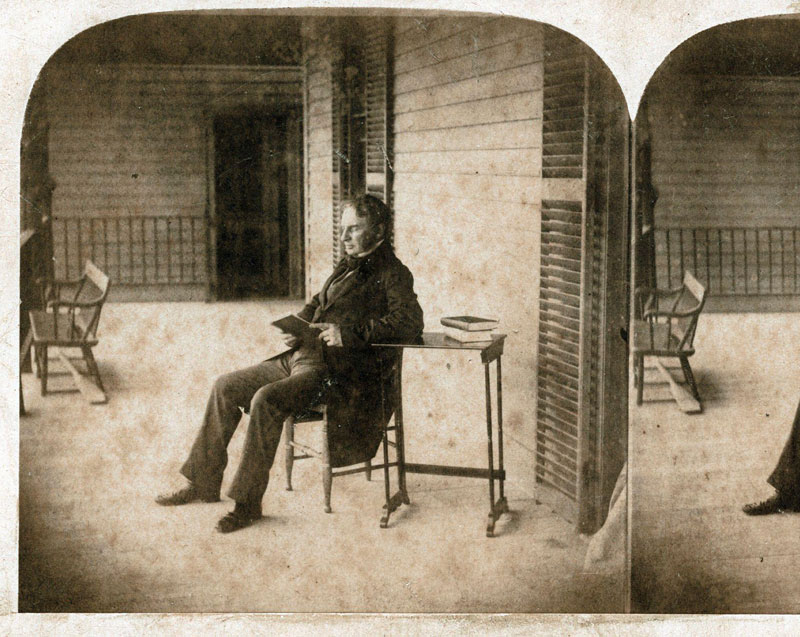Philosophy Disguised as Science
Darwin on Trial
by Phillip Johnson
Downers Grove, Illinois: InterVarsity Press, 1993.
(230 pages)
reviewed by Brian McDonald
Josh Billings, the nineteenth-century cracker barrel philosopher once wrote, “It is better to know nothing than to know what ain’t so.” In Darwin on Trial, Phillip Johnson argues that the Darwinian theory of evolution may belong to that dangerous category of things which we “know but ain’t so.” Johnson, who has taught law at Berkeley for 20 years and is an expert in the examination of evidence, finds little actual proof for the Darwinian hypothesis. Perhaps no scientific theory has been held more confidently on the basis of less evidence than evolution. It is treated as pure and absolute fact, not because Darwin or any of his successors proved it to be true, but because it fits in perfectly with the naturalistic assumptions of our era. It is the pervasiveness of these assumptions rather than the persuasiveness of the evidence that has led to the legal, cultural, and public relations triumphs of Darwinism in this century.
He deals with those triumphs, focusing on the court victories, in his first chapter, “The Legal Setting.” The scientific establishment has successfully turned back every legal challenge to the teaching of evolution as fact (instead of theory). This success is based on the fact that the public educational institutions of modern America can teach “science” but not “religion.” The pro-evolution viewpoint has been successful in portraying all challenges to the theory as “religious” and all arguments for it as “scientific.” Johnson analyzes the “friend of the court” brief filed by the National Academy of Sciences in the famous Louisiana Evolution-Creationist court case of 1981. This brief maintains that no negative arguments may be brought up against the theory of evolution until a better hypothesis is offered. However, since any conceivable alternative hypothesis would probably involve purpose or design, it would be “religious” and hence automatically inadmissible. Therefore no negative evidence can be offered. This line of thinking, which prevailed in the Louisiana case and in many others, “. . . seemed to be structured to make it impossible to question whether what we are taught about evolution is really true.”
But what the courts and the scientific establishment will not permit us to do, Johnson does in the body of this work. It is a tribute to him that though his challenge to Darwinian dogma has not always been received kindly in scientific circles, he has been taken seriously. He has appeared in several symposia at respectable academic centers and his book has been extensively reviewed. Part of the book’s strength lies in its author’s refusal to lobby for any particular creationist agenda and his focusing on the weaknesses of the Darwinian hypothesis itself. He also defines his terms clearly, something not always done in debates between the pro-evolution and anti-evolution positions. He defines creationism broadly, to include any view that posits God as the basis for the creation and development of life on this world. He defines evolution narrowly to mean “Darwinism.”
He does this because “Darwinism,” in however modified a form, is what scientists mean when they use the world “evolution.” Darwinism is the view of evolution taught in the textbooks, secondary schools, and universities of our land. It is important to understand this because Darwinism means “. . . fully naturalistic evolution, involving chance mechanisms guided by natural selection” and hence is utterly incompatible with any broadly Christian view of design and purpose, not only the literalistic “six-day” variety.
Since Darwinism, if true, has overwhelming implications for the Christian faith and human life, it ought to be confirmed by overwhelming evidence before being taught as proven scientific truth which no one has the right to challenge. But as Johnson sees it, the evidence, far from being overwhelming, is almost nonexistent. Space limits the depth into which we can investigate his critique, but we will look at some of his arguments in his chapters on “Natural Selection” (chapter 2), “The Fossil Problem” (chapter 4), and “The Molecular Evidence” (chapter 6).
Natural Selection: Theory or Fact?
In chapter 2, Johnson notes that “natural selection” or “the survival of the fittest” as it is popularly known, is the most distinctive of Darwinian ideas. It is, in the Darwinian view, the basic mechanism by which one species evolves into another. In the struggle for survival, certain chance variations give certain members of a species an advantage over others. These advantages, originally caused by random mutation, are passed on to offspring and the characteristic gradually spreads. The slowly growing accumulation of these advantageous characteristics leads eventually to the formation of a new species. Before considering the actual evidence for this, Johnson asks us to pause and consider all the wonders this natural selection must accomplish. It must be, at the same time, both utterly mindless yet endlessly creative:
. . . a guiding force so effective that it could accomplish prodigies of biological craftsmanship that people in previous times had thought to require the guiding hand of a creator.
That an unplanned, unconscious, and accidental process could accomplish all this is such an antecedently improbable idea that only the strongest evidence should compel our acceptance of it. What is this evidence? Johnson looks at two arguments used to bolster Darwinism based on what we may observe in the world today. The first is that the variations and changes which have been introduced into animal and plant life by the wonders of selective breeding prove that the same things could have happened “naturally” in a past evolutionary process. Another argument is that we can actually observe changes occurring in species in our own day.
subscription options
Order
Print/Online Subscription

Get six issues (one year) of Touchstone PLUS full online access including pdf downloads for only $39.95. That's only $3.34 per month!
Order
Online Only
Subscription

Get a one-year full-access subscription to the Touchstone online archives for only $19.95. That's only $1.66 per month!
bulk subscriptions
Order Touchstone subscriptions in bulk and save $10 per sub! Each subscription includes 6 issues of Touchstone plus full online access to touchstonemag.com—including archives, videos, and pdf downloads of recent issues for only $29.95 each! Great for churches or study groups.
Transactions will be processed on a secure server.
more on evolution from the online archives

23.6—November/December 2010
Darwin, Design & Thomas Aquinas
The Mythical Conflict Between Thomism & Intelligent Design by Logan Paul Gage
more from the online archives

24.6—Nov/Dec 2011
Liberty, Conscience & Autonomy
How the Culture War of the Roaring Twenties Set the Stage for Today’s Catholic & Evangelical Alliance by Barry Hankins
calling all readers
Please Donate
"There are magazines worth reading but few worth saving . . . Touchstone is just such a magazine."
—Alice von Hildebrand
"Here we do not concede one square millimeter of territory to falsehood, folly, contemporary sentimentality, or fashion. We speak the truth, and let God be our judge. . . . Touchstone is the one committedly Christian conservative journal."
—Anthony Esolen, Touchstone senior editor











